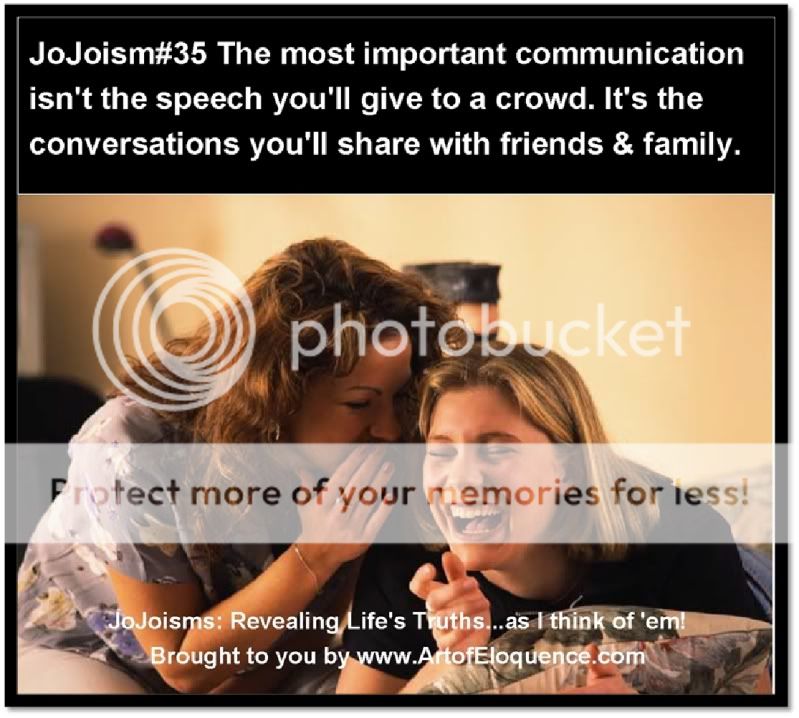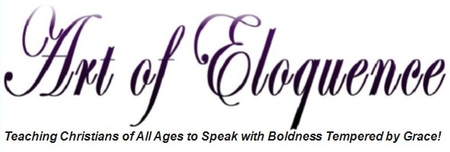As it is Effective Communications Month, I thought I'd begin my series of blog articles with a reminder of what communication really is. Here is an article I wrote a while back that puts it best.

Communication is a word you’ve probably heard since you were young, but I’ll bet you can’t define it. Some people think communication is talking, conversation, making a speech, persuading someone of something or badgering them into coming to church. Others think it’s manners, etiquette or social graces.
Merriam Webster defines communication as “
an act or instance of transmitting,” “
information transmitted or conveyed,” “
a verbal or written message,” “
exchange of information,” “
personal rapport,” or their most comprehensive definition, “
a process by which information is exchanged between individuals through a common system of symbols, signs, or behavior.”
Wikipedia has one of the most complete definitions of communication I have ever seen:
“Communication is the activity of conveying information. Communication has been derived from the Latin word “communis”, meaning to share. Communication requires a sender, a message, and an intended recipient, although the receiver need not be present or aware of the sender’s intent to communicate at the time of communication; thus communication can occur across vast distances in time and space. Communication requires that the communicating parties share an area of communicative commonality. The communication process is complete once the receiver has understood the message of the sender.“
I know I was subtle by putting it in bold letters, but didja catch that last part? I’d go one step further. Effective communication is complete when the receiver has understood the message of the sender, the way in which the sender had intended.
True communication, effective communication requires that the listener understands the sender’s message in the spirit it was intended or the message is skewed, misunderstood and the relationship between the sender and receiver has changed or is damaged in some way.
Everyone talks, but not everyone truly communicates. Everyone gets a message across, but not everyone has the ability to relate his message so effectively that his listener understands his message as it was intended. Anyone can lecture, but not everyone can truly teach, enlighten. Manners will only get you so far in a relationship. A speech will not endear you to your neighbor. A presentation will not help you resolve a conflict with your brother. Social graces will not persuade a nation to elect the right candidate. Etiquette cannot help you share your faith. And the communication skills required for each of these activities are different.
Everyone learns to talk. Very few learn to communicate effectively. It isn’t because it’s a set of skills only important for lawyers and politicians. It’s because society fully understands when communication is done badly, but does not understand that the reason behind the conflicts, divorce, lost job opportunities, and failed businesses is most often an inability to effectively express the vision.
~*~*~*~*~*~*~*~*~*~*~*~*~*~*~*~*~*~*~*~*~
If you liked this post, read…Seven Reasons Why YOU Should Sign Up for the Art of Eloquence
Newsletter
 Communication is a word you’ve probably heard since you were young, but I’ll bet you can’t define it. Some people think communication is talking, conversation, making a speech, persuading someone of something or badgering them into coming to church. Others think it’s manners, etiquette or social graces.
Merriam Webster defines communication as “an act or instance of transmitting,” “information transmitted or conveyed,” “a verbal or written message,” “exchange of information,” “personal rapport,” or their most comprehensive definition, “a process by which information is exchanged between individuals through a common system of symbols, signs, or behavior.”
Wikipedia has one of the most complete definitions of communication I have ever seen:
Communication is a word you’ve probably heard since you were young, but I’ll bet you can’t define it. Some people think communication is talking, conversation, making a speech, persuading someone of something or badgering them into coming to church. Others think it’s manners, etiquette or social graces.
Merriam Webster defines communication as “an act or instance of transmitting,” “information transmitted or conveyed,” “a verbal or written message,” “exchange of information,” “personal rapport,” or their most comprehensive definition, “a process by which information is exchanged between individuals through a common system of symbols, signs, or behavior.”
Wikipedia has one of the most complete definitions of communication I have ever seen:
